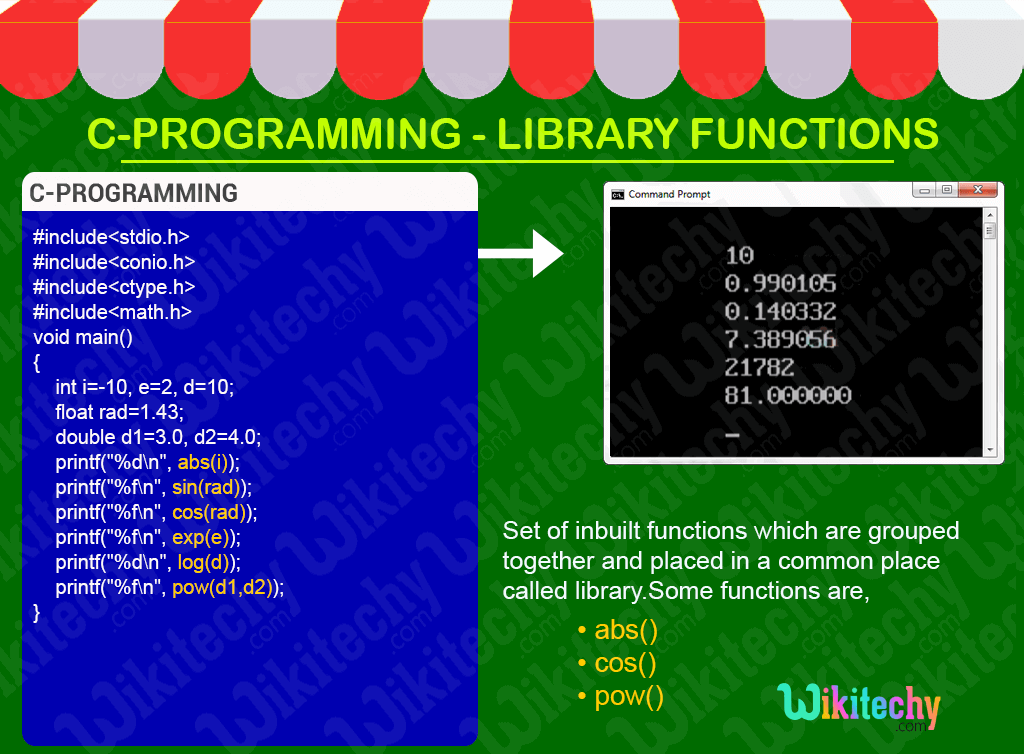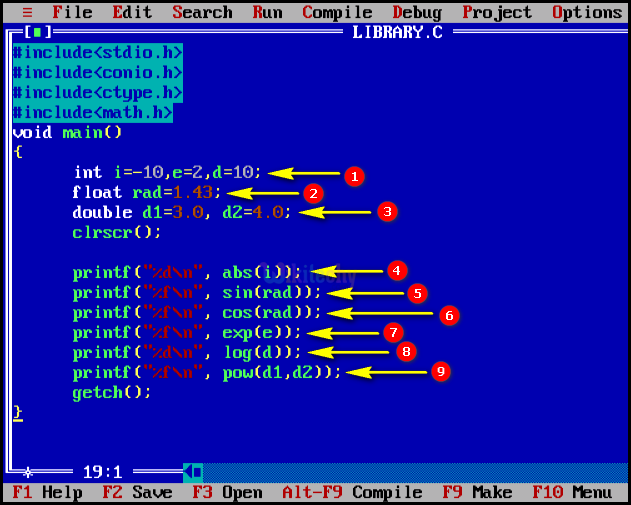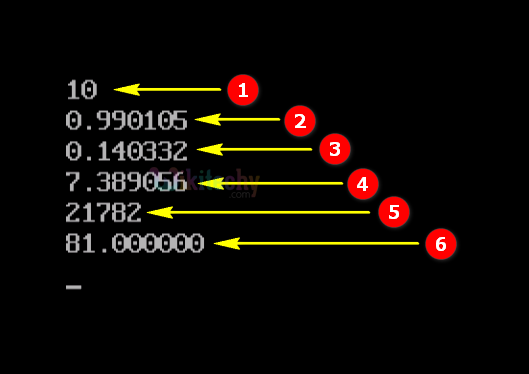Library Functions in C

Learn C - C tutorial - Library functions in c - C examples - C programs
Library Functions in C - Definition and Usage
- Library functions are inbuilt functions which are grouped together and placed in a common place called library.
- In C- Programming the library functions are accompanied by the number of standard library functions which carry out various useful tasks.
- In general, all the input and output operations and all math operations are implemented by library functions.
- All library functions are declared in many header files which are saved as file_name.h.
Some of the Library Functions Under Different Header File
- <stdio.h> - Standard Input/Output Function
- <conio.h> - Console Input/Output Function
- <stdlib.h> - Standard Utility Function
- <math.h> - Mathematical Function
- <ctype.h> - Character Type Function
- <assert.h> - Assertion Function
- <string.h> - String Functions
- <time.h> - Date Time Function
- <signal.h> - Signal handling Functions
- <stdarg.h> - Variable Arguments handling Functions
- <error.h> - Error handling Functions
- <locale.h> - Localization Functions
- <setjmp.h> - Jump Functions
Read Also
C Programming Functions
Sample - C Code
#include<stdio.h>
#include<conio.h>
#include<ctype.h> //Character Handling Functions
#include<math.h> //Mathematical Functions
void main()
{
int i=-10, e=2, d=10; /* Variables Defined and Values are Assigned */
float rad=1.43;
double d1=3.0, d2=4.0;
printf("%d\n", abs(i)); //Absolute value Functions (Positive values)
printf("%f\n", sin(rad)); //Sine Functions (Trignometrical values)
printf("%f\n", cos(rad)); //Cosine Functions (Trignometrical values)
printf("%f\n", exp(e)); //Exponential Functions (Exponential values)
printf("%d\n", log(d)); //Logarithms Functions (Log values)
printf("%f\n", pow(d1,d2)); //Power Functions (Power values )
}C Code - Explanation :
- Here in this statement we declare the variable with its values “i=-10”,” e=2”and “d=10” as integer datatype.
- In this statement we declare the variable and initialize the value of “rad=1.43”as float datatype.
- In this statement we declare the variable d1, d2 and initialize the value of d1=3.0 and d2=4.0 as double datatype.
- Here in this statement we print the absolute value of the variable “i”.
- Here in this statement we print the sin value of the variable “rad”.
- Here in this statement we print the cos value of the variable “rad”.
- Here in this statement we print the Exponential value of the variable “e”.
- Here in this statement we print the log value of the variable “d”.
- Here in this statement we print the power value of the variable d1 & d2.

Sample Output - Programming Examples
- Here in this output we print the absolute value 10 of the variable “i” (where i=-10).
- Here in this output we print the sin value 0.990105 of the variable “rad” (where rad=1.43).
- Here in this output we print the cos value 0.140332 of the variable “rad” (where rad=1.43).
- Here in this output we print the Exponential value 7.389056 of the variable “e” (where e=2).
- Here in this output we print the log value 21782 of the variable “d” (where d=10).
- Here in this output we print the power value 81.00000 of the variable d1 & d2 (where d1=3.0 and d2=4.0).

